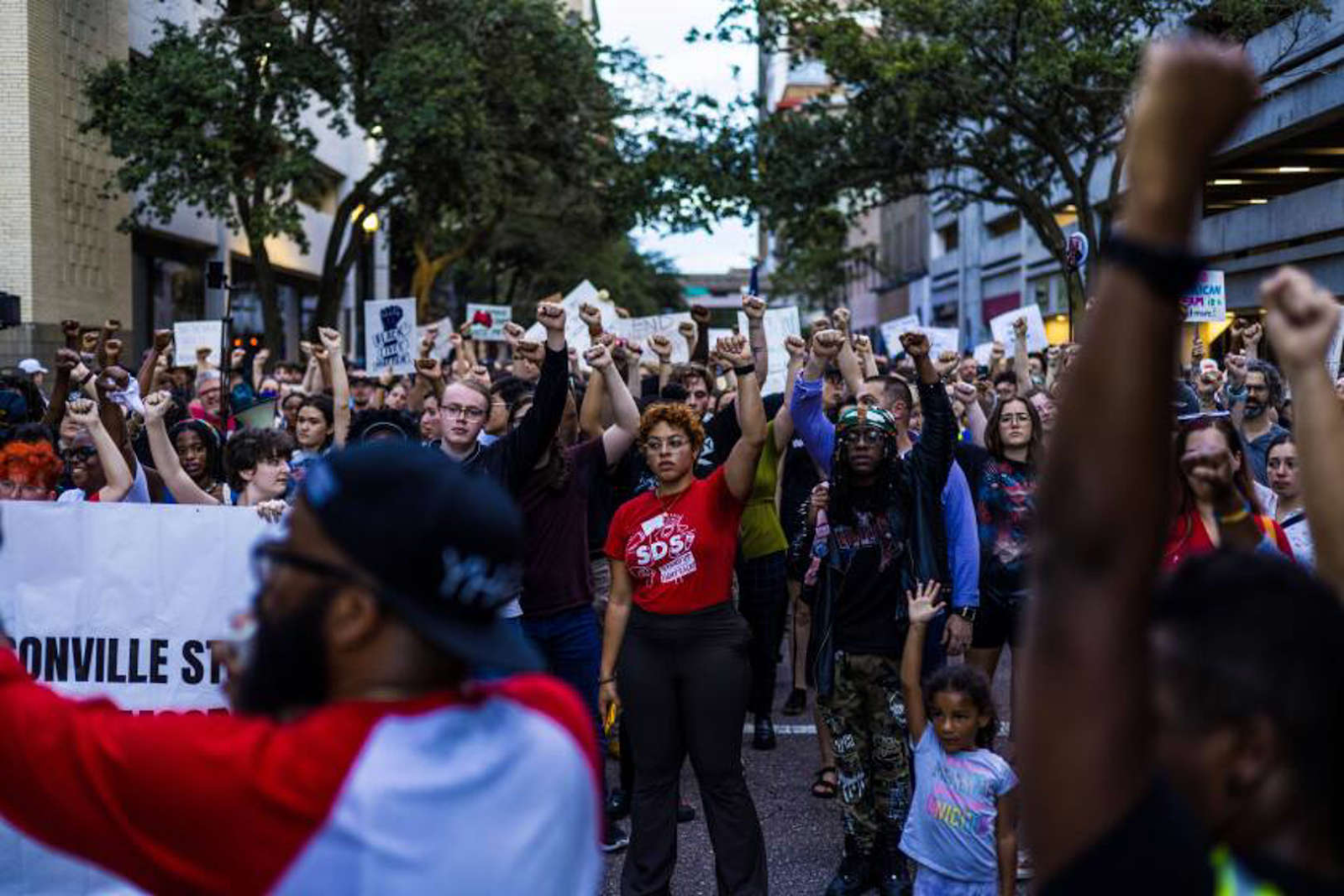Opinion. Not reality.
Granderson: From 1990's to this week, racial violence against Black Americans goes largely unanswered
I graduated from college in 1996.
That year, President Clinton signed an anti-church-burning bill into law. Between the time I received my high school diploma and my bachelor's degree, more than 40 predominantly Black churches had been burned in the South alone.
Not in 1966. In 1996. A tough pill to swallow for the “that was a long time ago” crowd.
Tom Royals was the defense attorney for one of three young white males convicted of burning the Rocky Point Missionary Baptist Church in Mississippi back in 1993. Reportedly they yelled "burn, n—, burn" as they sped away. Royals, who had lived in the state since the 1950s, described the arson as “irrational” and the arsonists as “young, drunk and crazy.”
“Racist” would have been more accurate. Certainly more direct. But not flattering. So, Royals took the scenic route in describing his client’s actions in hopes of softening the blow. It didn’t work.
This week, I am returning to teach at the college from which I graduated in 1996. Also, this week, President Biden issued a statement saying that “white supremacy has no place in America.”
Quite the bookends.
The year I left college, Black churches were being burned to the ground — some reportedly by members of the KKK. More than a quarter of a century later, a white man with swastikas painted on his gun and a white supremacist patch on his tactical vest, guns down three Black people in Jacksonville, Fla.
In between, there have been too many racially motivated hate crimes to list. There’s no need dig up archival footage from the civil rights era in the 1960s when racist attacks are still occurring with great regularity in real time.
Biden’s statement took the direct approach in condemning what happened last weekend in Florida. As did those made by local law enforcement in the immediate aftermath.
“This shooting was racially motivated, and he hated Black people,” Jacksonville Sheriff T.K. Waters said of the killer. “I don’t know that the targets were specific, but I know that any member of that race at that time was in danger. Of the Black race.”
FBI Director Christopher A. Wray said, “This was a targeted attack, a hate crime that was racially motivated.”
So why did Rep. Matt Gaetz (R-Fla.) take the scenic route in describing what occurred? He wrote on social media that “a sick person” committed the acts and that “we condemn this in the strongest possible terms and hope for a day when violence like this is absent from our society.”
Violence like what, I wonder? In 2021, Gaetz called the Anti-Defamation League “a racist organization,” so clearly he’s not afraid to use the word. Yet he withheld any mention of race while talking about a racially motivated attack.
For a defense attorney such as Royals, using vague and equivocal language is consistent with trying to defend a client. So why is Gaetz — who invited a Holocaust denier to the State of the Union address in 2018 — being so vague? Why won’t he state the obvious?
Of the 37 church fires in Florida investigated by the Clinton administration, most took place in Jacksonville. However, some occurred in the same congressional district where Gaetz was attending high school at the time. Some occurred while Gaetz was attending classes at Florida State University.
In 2015, nine Black worshipers at a church in Charleston, S.C., were murdered by a white supremacist. Three years later, a white supremacist attacked a Pittsburgh synagogue leaving 11 Jewish worshipers dead. In 2019, 23 shoppers, mostly Latinos, were murdered in El Paso by a white supremacist radicalized by the “great replacement theory” promoted by Tucker Carlson and other commentators and right-wing extremists. That’s the same worldview echoed by the gunman who entered a Buffalo, N.Y., grocery store in 2022, killing 10 people. The 180-page manifesto made clear he targeted his victims for being Black.
The problem for “that was a long time ago” crowd is the definition of “long time ago” needs constant updating. It refreshed when I was in college. It refreshed when Gaetz was in college. It has been painfully refreshed for students returning to campus this week.
Generation after generation of Americans are confronted with racially motivated violence and right-wing elected officials trying to dismiss reality with equivocal language. Like a defense attorney. In 2021, while addressing a crowd of supporters, Gaetz said, “They aren’t really coming for me. They’re coming for you. I’m just in the way.”
Great — but who exactly is he trying to protect?
Link.


Comments
Post a Comment